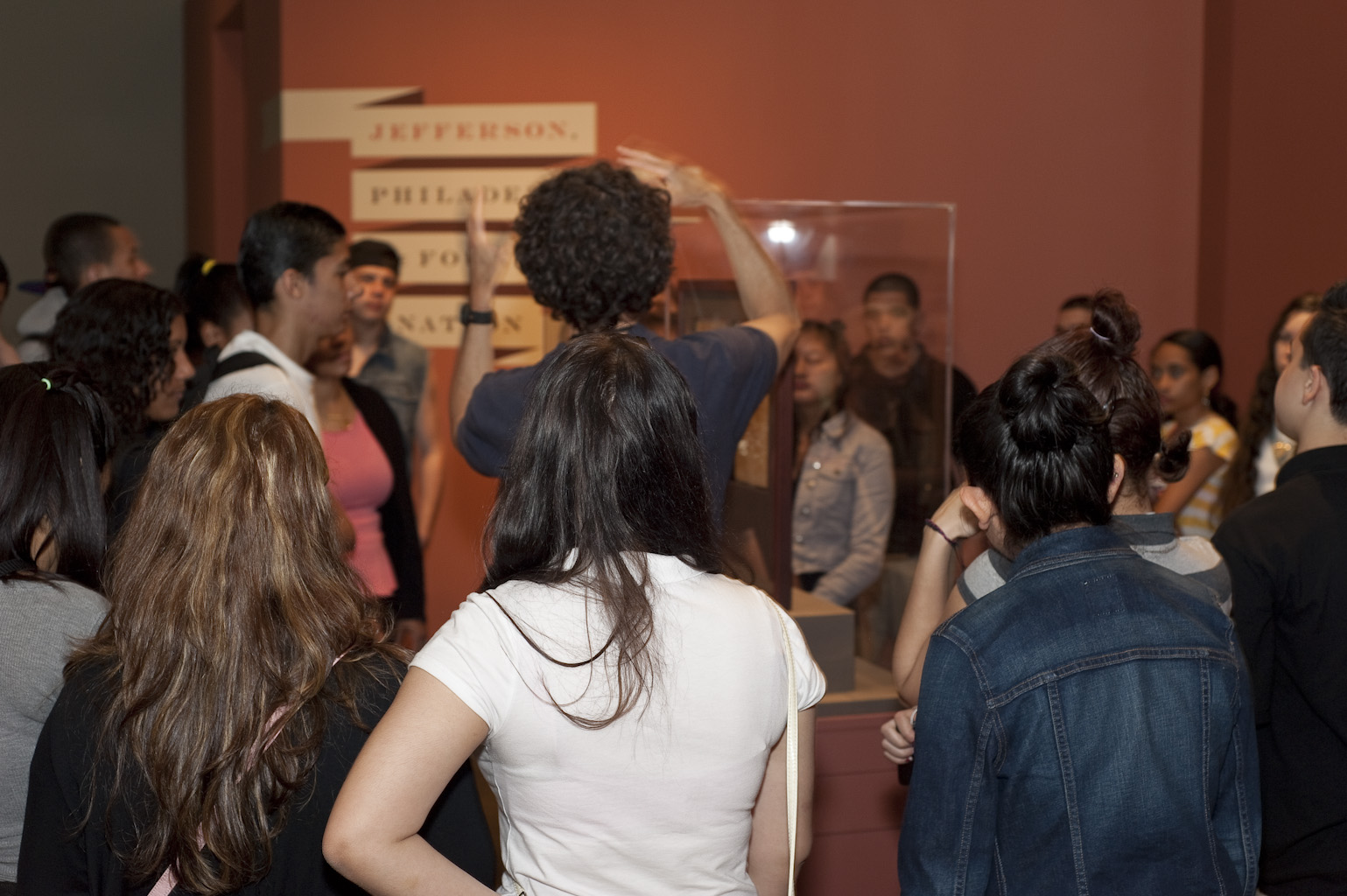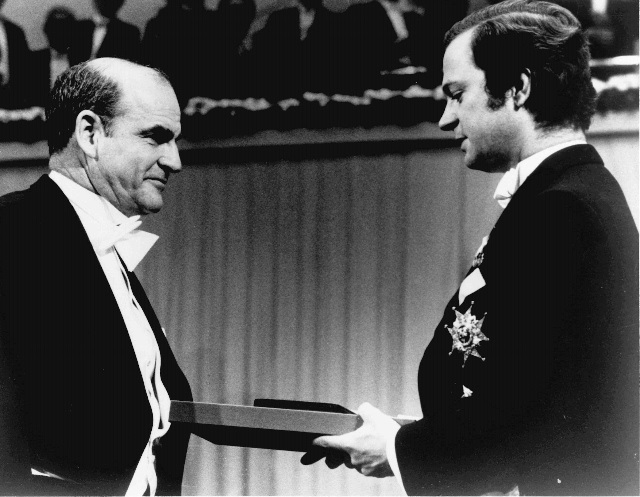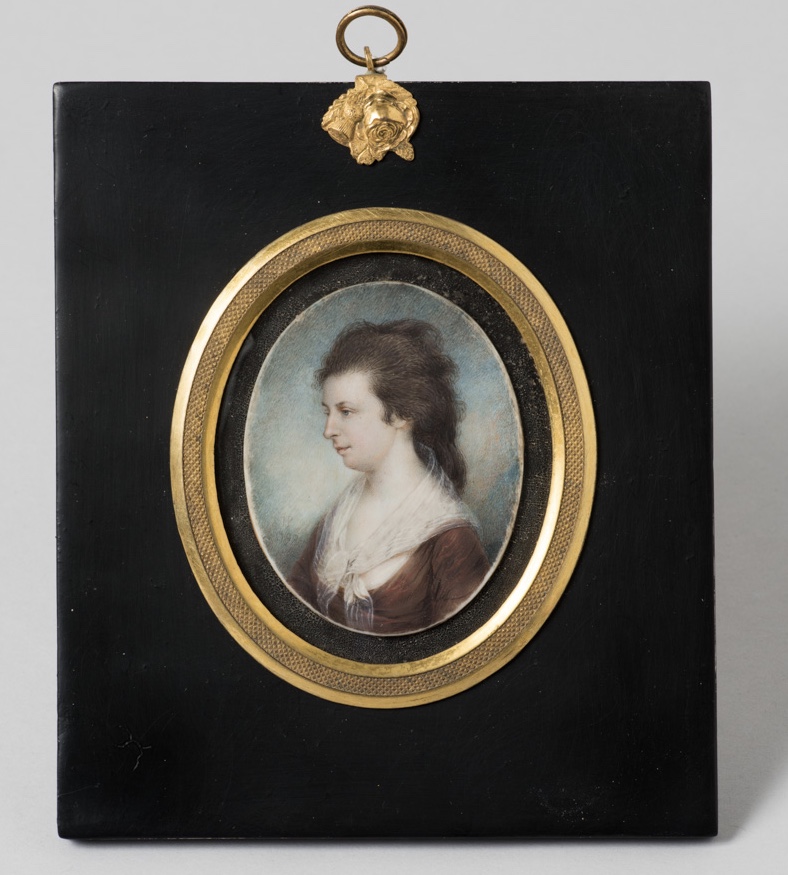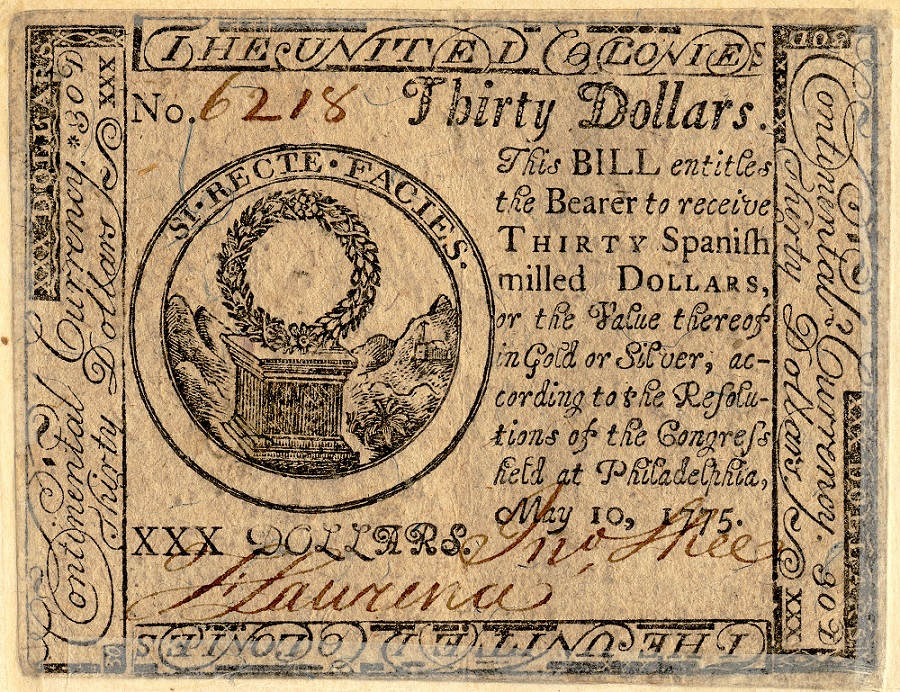2009 Autumn General Meeting
Judson Daland Prize for Outstanding Achievement in Clinical Investigation
Keith A. Josephs and Jordan Orange
The recipients of the 2009 Judson Daland Prize are Dr. Keith A. Josephs, M.S.T., M.D., M.S., Associate Professor of Neurology at the Mayo Clinic College of Medicine in recognition of his work on clinical, pathological and imaging correlates of neurodegenerative and other neurological diseases and Dr. Jordan Orange, M.D., Ph.D., Director of the Jeffery Modell Diagnostic Center for Primary Immunodeficiency, Attending Physician, Division of Allergy and Immunology at the Children’s Hospital of Philadelphia, and Assistant Professor of Pediatrics at the University of Pennsylvania School of Medicine, in recognition of his work on congenital defects of innate immunity and natural killer cells. The award was presented by the Chair of the Selection Committee, Clyde F. Barker, Donald Guthrie Professor at the University of Pennsylvania.
Dr. Josephs’ work has focused on correlating clinical manifestations with imaging and pathological findings in patients with neurodegenerative and other neurological diseases. He has made significant contributions to deciphering the complexity of the pathologies underlying neurodegenerative diseases. He has identified markers that allow the prediction of brain pathology in these patients, in order to provide definitive diagnosis and hence appropriate treatment.
He has identified a new disease called neurofilament inclusion body disease (NIBD), a neurodegenerative disorder associated with abnormal deposition of intermediate filaments in the brain. He has also identified a variant of progressive supranuclear palsy, a disease in which abnormal protein deposition within oligodendroglial cells causes destruction of the descending corticospinal tracts. His research has shown significant overlapping of clinical and pathological features between progressive supranuclear palsy, corticobasal degeneration and the frontotemporal lobar degenerations. This has led to better understanding, and reclassification, of much of the entire field of neurodegenerative disorders.
In studies of speech and language disorders Dr. Josephs has demonstrated an association between a motor speech disorder and the presence in the brain of the microtubule associated protein. In addition, he has shown that patients presenting with clinical features of motor neuron disease have a homogeneous underlying pathology. Clinicians worldwide are now using these clinical markers to help predict the underlying pathology, and hence guide treatment of patients with progressive neurodegenerative disorders. He has also utilized cutting edge imaging techniques to demonstrate signatures of a number of different neurodegenerative pathologies thus aiding diagnosis. With these imaging techniques, for example, he showed that the deposition of amyloid in the brain in patients with Alzheimer’s disease is not associated with increased rates of brain atrophy. This finding has significant impact on the utility of markers of disease progression in future treatments targeting beta-amyloid, one of the abnormal proteins in Alzheimer’s disease.
In addition to his significant contributions to the field of neurodegenerative diseases, Dr. Josephs has made important patient-oriented research contributions in other neurological diseases. Dr. Josephs identified, for the first time, an important association between dementia and celiac disease. Similarly, based on a single patient encounter which lead him to study Manganese neurotoxicity, he identified an association between exposure to welding fumes and the subsequent development of Parkinsonian features. This finding has had a significant impact on welders by encouraging adequate protection with masks and proper ventilation.
Dr. Jordan Orange is a pioneer in understanding inborn human defects of the innate immune system. In studies of human Natural Killer (NK) cell deficiencies he has found novel connections between inborn defects of the immune system and innate immunity. These have defined paradigms in host defense and given rise to novel therapeutic approaches.
The innate immune system is our initial defense against danger. It protects us from encounters with pathogens that begin at birth and serves as a first line of defense throughout life. Without our innate immune system we would be susceptible to many life-threatening infections and malignancies. So far relevance of the innate immune system to human disease has been demonstrated mainly by congenital deficiencies of innate immunity. It is in these unusual diseases that Dr. Orange has focused his work.
While working toward his Ph.D., Dr. Orange noted that natural killer (NK) cells, which are a major component of the innate immune system, produce cytokines to participate in antiviral defense. During his clinical training in Pediatrics at the Children’s Hospital of Philadelphia and fellowship in Allergy and Immunology at Children’s Hospital Boston, Dr. Orange’s interest in the innate immune system and NK cells continued to flourish. Upon returning to the laboratory, he focused upon defining human deficiencies of NK cells and the innate immune system and in obtaining basic scientific insights from these diseases.
Over the past decade, Dr. Orange has studied human NK cell deficiencies in distinct genetic disorders of immunity. In these diseases, he has been able to characterize NK cell biology on a mechanistic level. For example in Wiskott-Aldrich syndrome, he has determined that cytoskeletal reorganization is impaired in NK cells leading to defective formation of the immunological synapse, the critical juncture between an immune cell and its target that enables immune function. In Wiskott-Aldrich syndrome, this deficiency likely explains the atypical susceptibility to herpes viruses and hematologic malignancies. He also identified a therapeutic means for bypassing the defect and restoring function of the immunological synapse in the cells of an afflicted patient. He has recently used this finding to develop and initiate a phase-1 clinical trial with the ultimate objective of restoring NK cell activity and improving outcome in this difficult disease. He has also identified defects of NK cells and innate immunity in NF-κB essential modulator deficiency. In this rare disease, he has defined a novel connection between rapidly-induced protein function and innate immune defense, an insight that may not have been possible without studying this disorder. Dr. Orange’s work has led him from bedside to bench and bench to bedside and has changed the understanding of NK cells, innate immunity and the complex immunologic diseases in which they are affected.
The Daland Prize selection committee consisted of Clyde F. Barker (chair), Donald Guthrie Professor, University of Pennsylvania; John N. Loeb, Professor Emeritus of Medicine, Columbia University; Arno Motulsky, Professor Emeritus of Medicine and Genome Sciences, University of Washington; and Thomas E. Starzl, Professor of Surgery, University of Pittsburgh School of Medicine.




